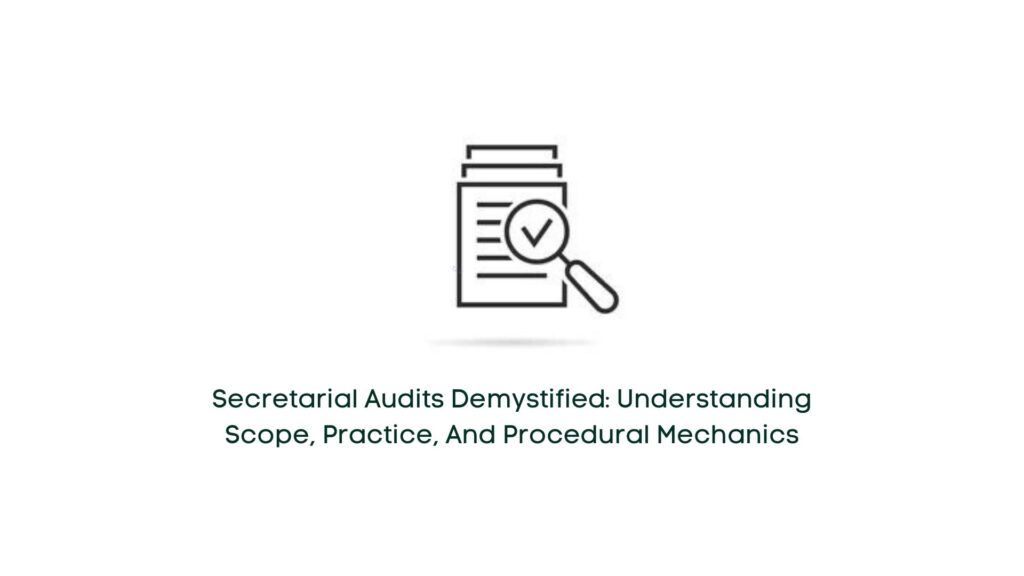
28 Feb Secretarial Audits Demystified: Understanding Scope, Practice, and Procedural Mechanics

In contemporary corporate governance, Secretarial Audit emerges as a crucial mechanism for evaluating compliance with a spectrum of legislative frameworks, including the Companies Act and related economic laws. This audit entails an independent evaluation by a certified professional, typically a member of the Institute of Company Secretaries of India, tasked with assessing the adequacy of systems and processes within a company to ensure adherence to relevant laws, regulations, and guidelines, commensurate with the company’s scale and activities.
Understanding Secretarial Audit
In the Indian corporate landscape, Secretarial Audits are mandatory for most companies. Legal provisions dictate the procedures for conducting such audits, primarily governed by the Companies Act of 2013. Section 204(1) of the Act mandates companies to procure a Secretarial Audit Report from a qualified secretarial auditor, in conjunction with Rule 9 of the Companies (Appointment and Remuneration of Managerial Personnel) Rules 2014.
Objectives of Secretarial Audit
The primary objective of a Secretarial Audit is to ascertain the meticulous observance of legal and procedural requisites within a company’s operations. By scrutinizing compliance levels, these audits facilitate the detection of non-compliances or inadequacies, thereby averting penalties and safeguarding the interests of various stakeholders, including customers, employees, and the broader society.
Mandatory Audits for Specific Companies
Under the purview of the Companies Act 2013, certain categories of companies are mandated to undergo independent secretarial audits. These include listed companies, public companies with significant capital or turnover thresholds, and those with substantial outstanding loans or borrowings from financial institutions.
Legislative Frameworks Encompassing Secretarial Audit
The Secretarial Auditor’s examination typically extends to a variety of statutory laws and regulations. These encompass the Companies Act 2013, Securities Contracts (Regulation) Act 1956, Depositories Act 1996, Foreign Exchange Management Act 1999, regulations prescribed by the Securities and Exchange Board of India, and Secretarial Standards issued by the Institute of Company Secretaries of India, among others.
Documentation Prerequisites for Secretarial Audits
Conducting a Secretarial Audit necessitates access to a plethora of documents, including various registers, returns, notices, minutes of meetings, charter documents, e-form filings, and relevant agreements or deeds.
Procedural Guidelines for Secretarial Audits
The process of Secretarial Audit entails several key steps, starting with the formal appointment of a company secretary auditor through board resolution. Subsequent stages involve formal communication, signing of engagement letters, preparation of working papers reports, and ultimately, submission of the audit report in compliance with statutory requirements.
Concluding Remarks
In the contemporary business landscape, adherence to legal and regulatory frameworks is paramount for organizational integrity and sustainability. Secretarial Audits serve as a linchpin in ensuring such compliance, mitigating risks of penalties and enhancing corporate governance practices. By fostering transparency and accountability, these audits bolster stakeholder confidence, thereby contributing to the overall reputation and operational efficacy of the organization.


No Comments